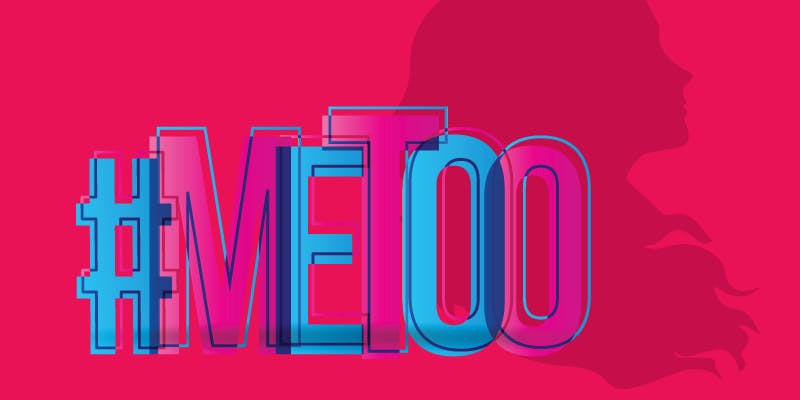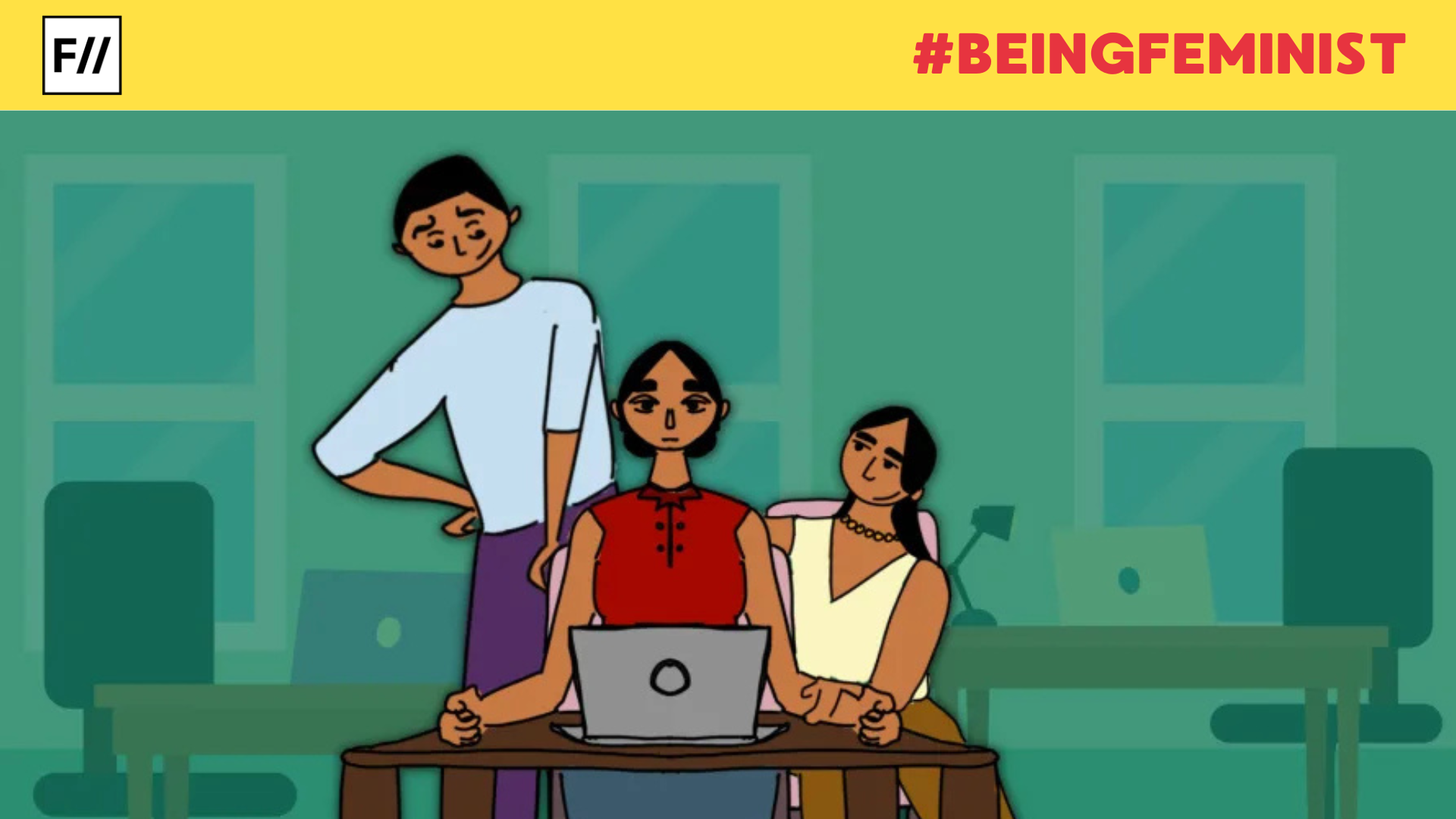By Mahitha Kasireddi
The month of October this year has been very eventful for women’s rights movement in India. It is indeed a watershed movement with so many women from all walks of life coming out with their experiences of sexual harassment at workplace. The sectors that are majorly in the dock are film industries, media and corporate world. In the aftermath of the #MeToo movement, there have been interesting developments to observe. Responses from men ranged from denying their acts, slapping defamation charges to insufficient apologies.
In the media, we have seen men ousted from their jobs by asking them to resign or sending them on a long leave. Yet, most of the men accused of misconduct still on hold on to their jobs and their careers remain unaffected. The staff of the independent media house The Wire is one such example. Women in South Indian film industry such as Malayalam, Kannada and Tamil have been losing work and bullied by powerful elements into extended public apologies. In addition to that they are also subjected to cyber bullying.
most of the men accused of misconduct still on hold on to their jobs and their careers remain unaffected.
Amidst all this, a report came out in October against the Google administration that they have been protecting men in higher positions who have been accused of sexual harassment and given a high amount of severance package. Google India’s CEO Sundar Pichai was swift to respond to this report. In a letter to the employees of Google he revealed that around 48 employees of all levels of position have been ousted on charges of sexual harassment in the past two years. This action by Google seems to be premature, way before #MeToo started in India.
Accenture, an MNC has been promoting itself as a gender equal space for work. In the past, there have been remarkable cases of sexual harassment against men in executive positions in corporate world. One such offender who was a repeated offender was Phaneesh Murthy of Infosys. There was no legal action possible against him. He continues to shine in his career. Prior to the law against sexual harassment came into place, corporate companies have reacted in the most hostile way possible by filing defamation cases women who level such charges.
Also read: #MeToo: Why Is It Hard For Men To Believe Women And Their Stories?
Today, the #MeToo movement is happening outside the legal system. Women are critical of the due process as it puts the burden to prove the actions of the offender on them, rather than on the offender to prove himself innocent. Post the #MeToo wave, it is interesting to know how the corporate world is reacting to it. Are they making efforts to create conducive work environment for their women employees?
According to a report in the Times of India, Business section, post the #MeToo wave on social media, 44 NIFTY companies have seen a hike in number of sexual harassment cases. The news report quoted interviews of CEOs of service provider companies and consultancies such Rainmaker, Cohere Consultants and ComplyKaro Services. According to them, companies have been anxiously downloading material from their website to understand the law on Prevention on Sexual Harassment at Work Place (POSH). The CEO of Rainmaker, a training solutions provider, reveals their website received high amount of traffic and led its crashing down.
The companies which earlier ignored their pitches to sensitise their staff on gender issues, have been getting back to them. The various queries made by these companies are, curriculum to train the members of their Internal Complaints Committee with the law against sexual harassment, training sessions for lawyers in their legal bench, training sessions for their line managers who are the first contact persons for employees to enable to them to offer empathetic listening and sensitise them to handle the sensitive issue.
The companies are clearly looking for a quick fix solution to deep-rooted cultural problems.
The companies want to know if women can level sexual harassment allegations after several years of its occurrence and the legal implications of non-compliance. Some companies want to know how to handle women in trauma and what kind of moral help they can offer.
The companies are clearly looking for a quick fix solution to deep-rooted cultural problems. These ad hoc measures to cleanse their environment may look meritorious in their annual progressive reports, but how do they plan to address patriarchy and glass ceiling in the corporate sector? On November 16th 2018, a conference called Young Thinkers Conference 2018 with the theme Women Representation in Leadership Roles, was held by the Indian Business School, Hyderabad.
The panellists of the session on breaking the glass ceiling discussed that the various gender issues that the companies need to reflect upon are, everyday sexism at workplace, unequal pay, gender gap in promotions to executive positions, gender gap in the board room, glass ceiling effect on women’s careers, preference for male employees for one-to-one mentoring and for sending them on overseas projects, prejudice against female employees who seek pregnancy leave and sacking them when they wish to return to work thereafter, non-availability to parental leave for male employees and the non-availability of creches for women who are working mothers. There has been a fear psychosis generated in the job market that hiring women is risk prone and the #MeToo movement is detrimental to women’s employability.
As much as the companies admit that their staff requires gender sensitisation programs, these measures clearly show they were till date negligent in building a strong redressal mechanism despite forming ICC just for the sake of it. Not just that, the women employees have little faith the process followed by the ICC as they fear repercussions.
Also read: One Year of #MeToo In India: Stories We Tell And A Lifetime of Lessons
The corporate needs to show more sincerity in building safe work spaces for women. They need to involve various stakeholders such as employees, managers, HRs, recruitment agencies, consultancies, etc. They need to come up a strong zero tolerance policy and irrevocable disciplinary actions to curb sexual harassment. It is a gradual process to reach a point of ideal circumstances and not an overnight revolution.
About the author(s)
Guest Writers are writers who occasionally write on FII.




